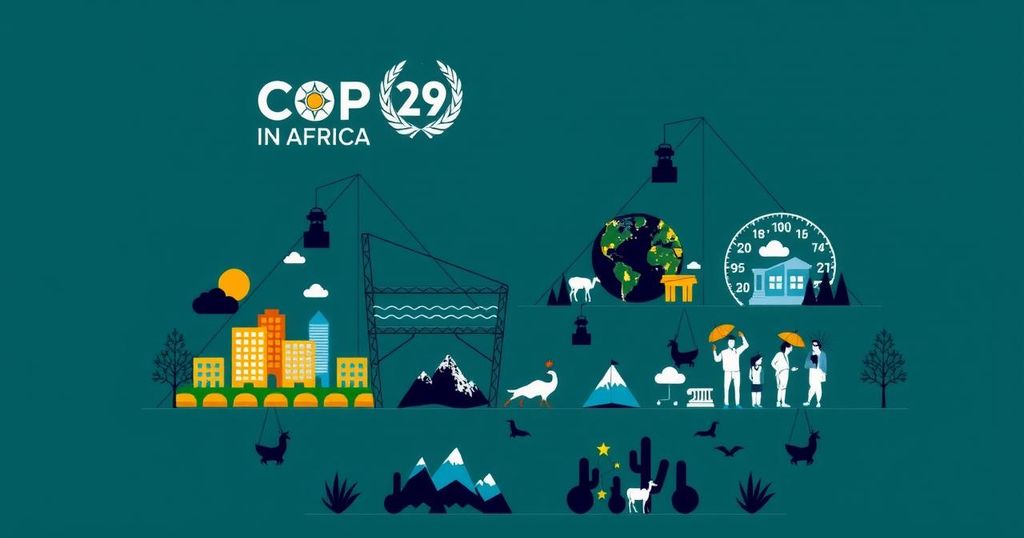COP 29 has demonstrated a lack of substantial climate finance for developing nations, particularly in Africa, failing to address their needs amidst escalating climate impacts. The summit’s outcomes reveal an insufficient response to the $1.3 trillion annual financing goal and a misguided reliance on carbon markets. With a proposed target of $300 billion by 2035 falling short of necessary levels, significant barriers remain for achieving meaningful climate action and adaptation efforts.
The COP 29 summit has underscored the disparity in climate finance commitments, particularly disadvantaging African nations already grappling with severe climate impacts. With a glaring lack of ambition, major polluters have deflected meaningful dialogues, leading to outcomes that inadequately address the $1.3 trillion annual climate finance goals set for developing countries. Shortcomings in the Nationally Determined Contributions (NDCs) further endanger global efforts to restrict temperature increases to below 1.5 degrees Celsius. The anticipated mobilization of $300 billion per year by 2035 is presented as a commitment to climate action, yet it fails to meet the significant financial requirements for effective adaptation and mitigation efforts. The perpetuation of carbon market strategies offers little genuine relief, fostering a narrative that allows historical polluters to evade responsibility while undermining the urgent need for systemic change.
As nations convene to discuss climate action, the principle of common but differentiated responsibilities emphasizes the urgent need for wealthier countries, historically responsible for the majority of pollution, to support developing nations. With impending climate crises on the horizon, developing countries require robust financial backing to fulfill their NDCs, which aim to mitigate climate impacts. The disparity between rhetoric and reality has become evident, expressing a troubling trend where financial promises remain largely unfulfilled, placing undue burdens on vulnerable populations.
The outcomes of COP 29 highlight a critical failure to provide adequate climate financing to developing nations, particularly in Africa. As proposed commitments appear insufficient against the backdrop of urgent climate needs, the responsibility of major polluters to shift towards responsible financial practices remains unaddressed. The reliance on ineffective carbon markets distracts from the urgent reforms required to secure equitable climate action, reinforcing the need for a more aggressive discourse surrounding the taxation of wealth and carbon emissions to drive meaningful change.
Original Source: www.greenpeace.org






